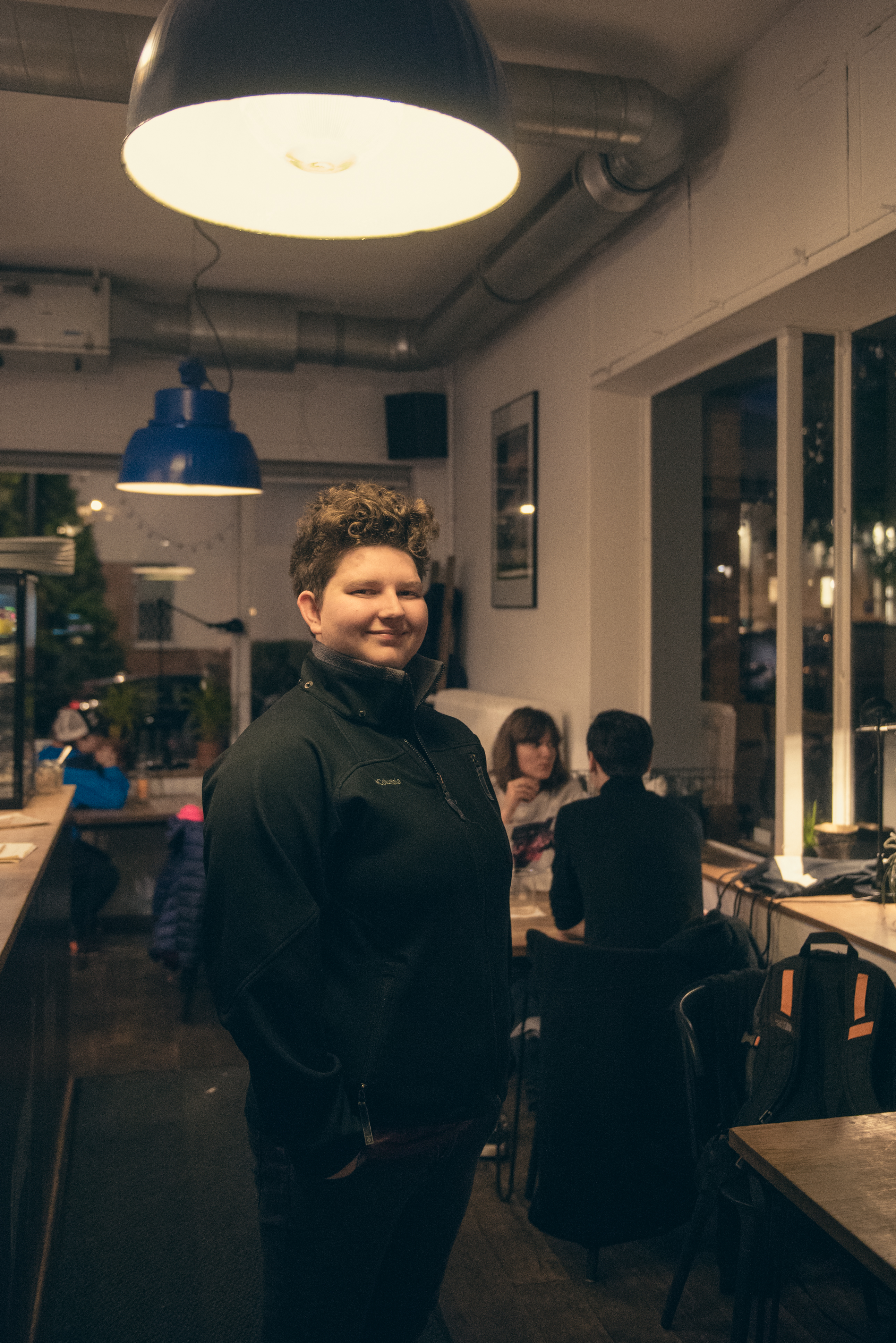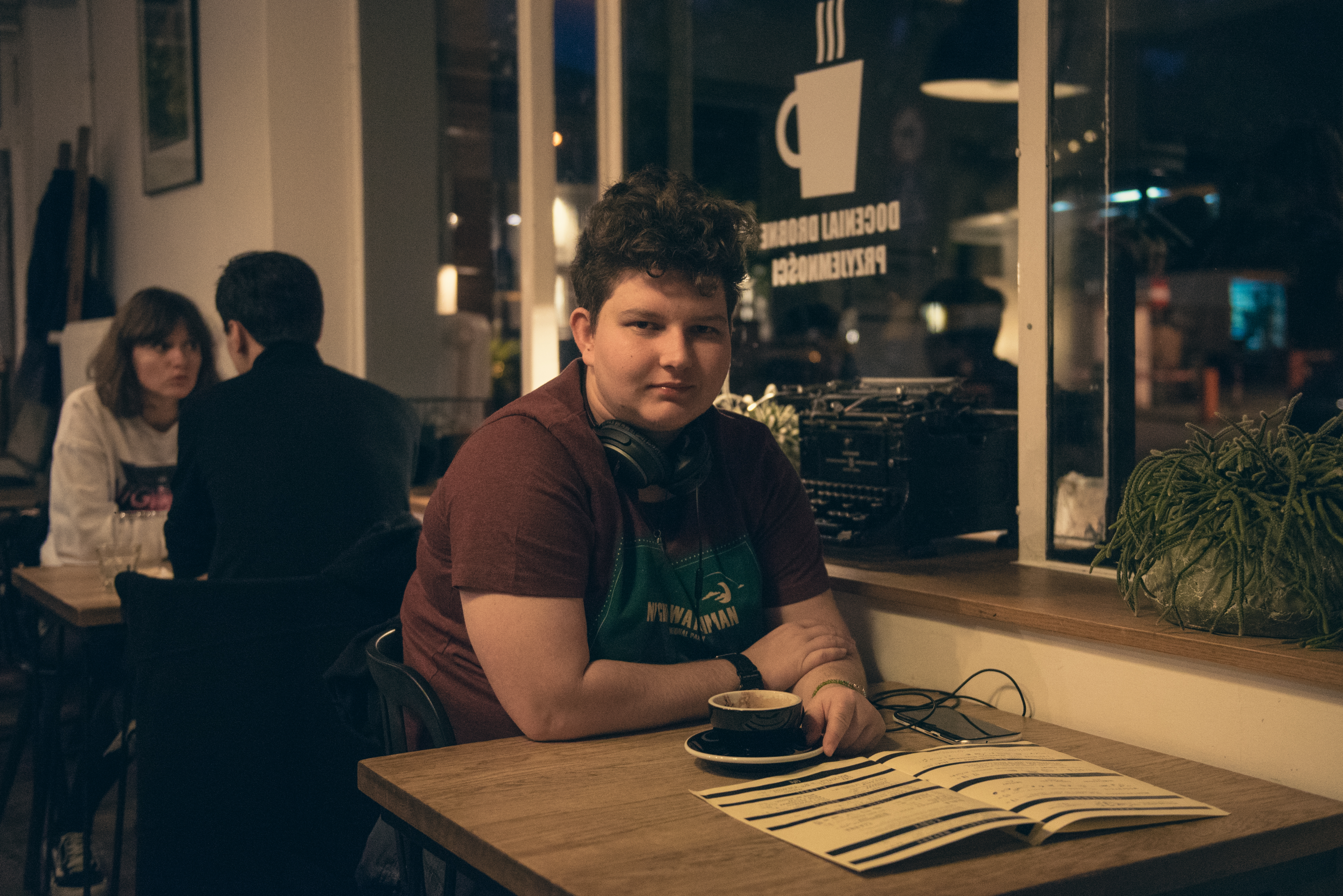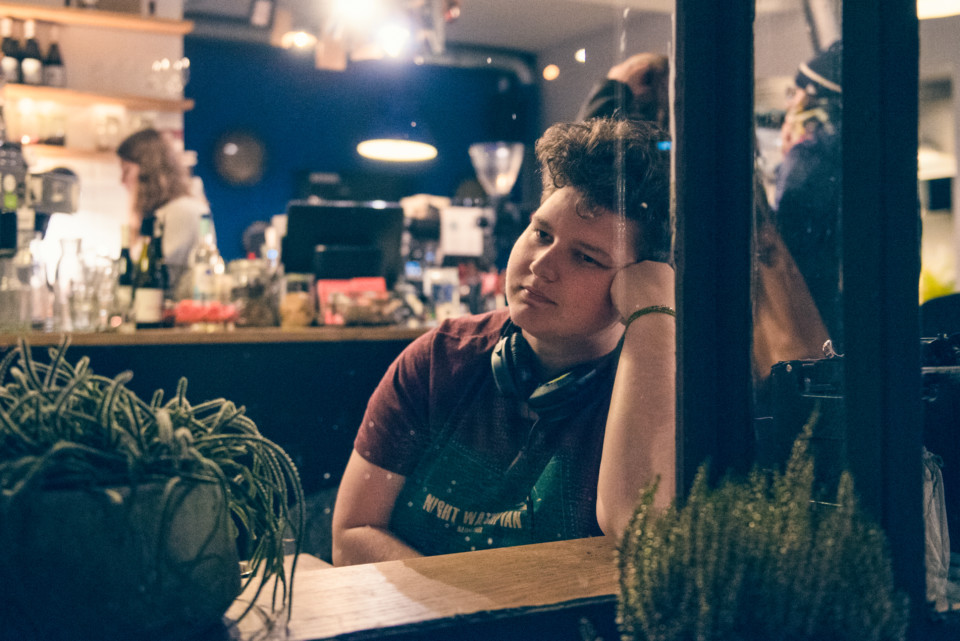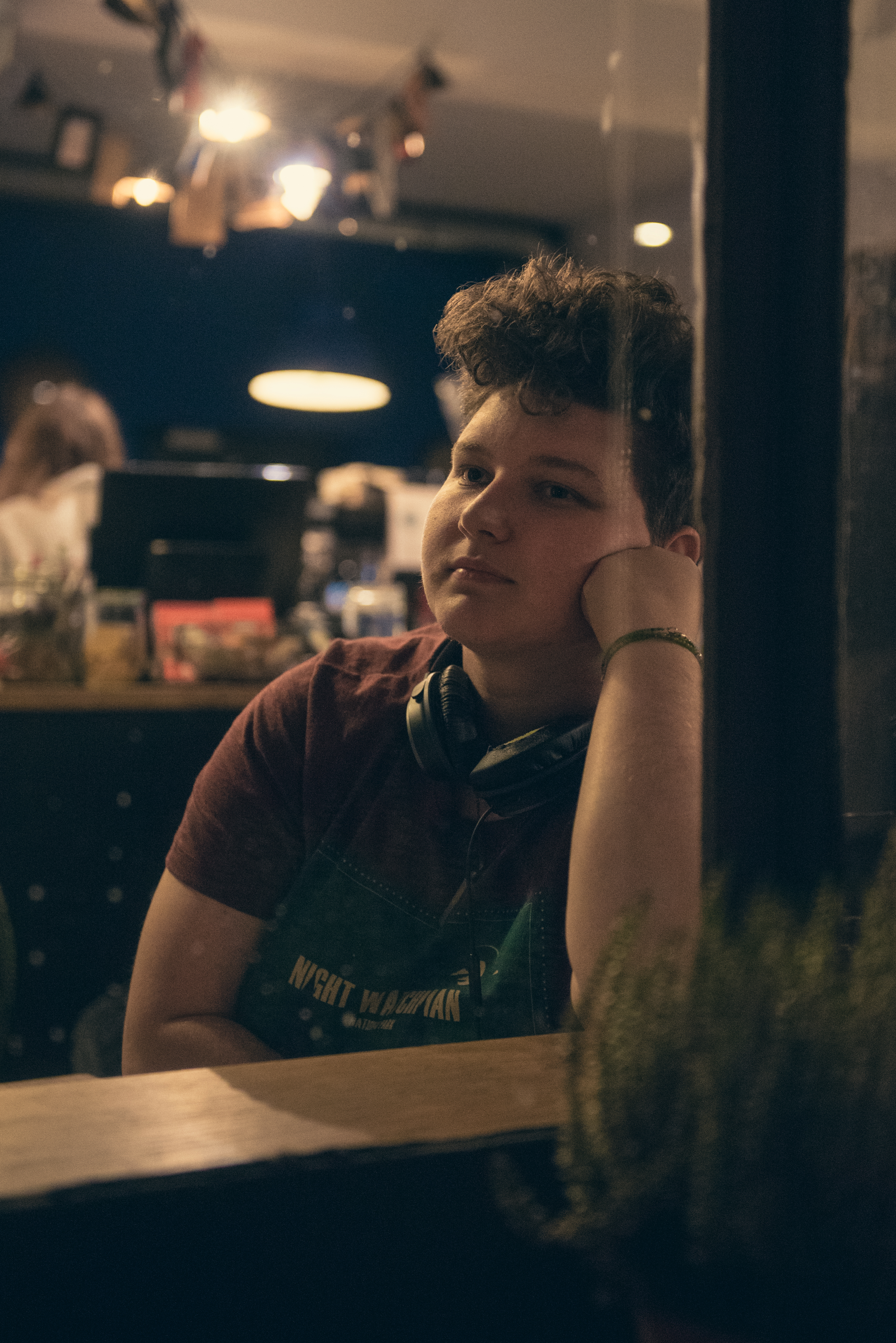N I K O L A
Warsaw | 2017
N I K O L A
City — Warsaw
Age — 26
Love life — Girlfriend
Profession — Programmer
Years in Warsaw — All her life (except for two years in Finland)
Location — Secret Life Café
T H E W A R S A W S T O R I E S
‘I KNOW NOW
THAT SADNESS
WON’T LAST
FOREVER’

- What makes you really happy?
“I rarely think about it and it changes over time. For now I can say that my girlfriend makes me happy, because I had been so lonely for a couple of years. I have never experienced a relationship like this in my life, this is my first serious girlfriend. Traveling gives me joy as well, it leaves me energized and positive. I like the feeling of adventure and having to figure out how everything works in another country. My last trip was to The United States, to speak at a conference about programming.”
- What is your best personality trait?
“My networking skills, I think. I connect with people very easily, meeting strangers is not a big deal for me. I know so many people that I can even help my friends find a job. The only people I can’t connect with are people with whom I don’t share a single interest.” - What do you think makes you different than other people?
“My name. Because it is considered a masculine name in Eastern European countries. When I write an email, they often think that I’m a man. My name caused me a lot of problems when I was in elementary school. My name abbreviates to ‘Kola’ so everyone called me Coca-Cola, which really pissed me off. Then again, people can easily remember my name, because it is so extraordinary here.” - What is your biggest struggle in life?
“Depression. My depression started when I lived in Finland for two years to study Internet and Game Studies. I was so lonely there. I thought that I would meet a lot of nice people, but Finns are very introverted, while I am very extraverted. They don’t like small talk, unless you drink lots of vodka with them first. But after my first semester in Finland I was still excited to be there and I was enjoying a lot of activities, like playing rugby. For the first time in my life I felt truly free. I was free from my parents, lived alone and did everything on my own. But my emotions were freed there as well, when I had always been holding them back. From that point on everything started to get difficult. Back home I had antidepressants prescribed and went to see a therapist. For the first time in my life I can identify my emotions. Before therapy I didn’t know what I was feeling, only that I didn’t want to feel it. I always saw myself as a strong person because I didn’t feel anything and could beat everyone and all the rubbish in my life. I still feel depressed, but it’s better than two years ago. In the beginning of my depression I couldn’t even meet people. I was just sitting in my apartment doing nothing. Now here I am, working, meeting people, organizing parties. I’m really proud of myself to have made so much progress. Maybe I became like this because my parents are alcoholics. I was really young when they were drinking, so I didn’t understand what was going on, only that it was wrong. But I thought it was normal and got used to it. Later I realized life doesn’t need to be like that. My parents haven’t been drinking for years now, but it’s not like after it ended everything was fine. It was not. They’re not perfect parents.”

- What is your biggest life lesson so far?
“I think the biggest lesson, which I don’t acknowledge that often, is that I was able to get everything right when I went to Finland. I arranged the school, an apartment, I went to parties. I used to think that I wasn’t capable of doing big things, but I know now that I am able to live as an adult in a different country without any help.” - What is the best advice that someone ever gave you?
“That sadness won’t last forever, that it will end. That is also my advice to other women in Europe. My therapist and some of my friends taught me this. I have been hearing this advice my whole life actually, but now I believe it. I didn’t understand that every emotional stage eventually passes, because I was so used to not knowing what I felt at all.” - What is your biggest disappointment in life?
“I’ve always been struggling with loneliness and making real friends. I was disappointed in myself that I wasn’t doing well enough in life. Not as a child and not as an adult. I was an achiever and wanted to have a lot of friends, a lot of money, get invited to a lot of parties, be perfect, be beautiful. This point of view is changing slowly, it’s a work in progress. I left some disappointments in the past and I don’t feel that I am failing at everything that I am doing anymore. And because of my girlfriend and best friends I also don’t feel lonely anymore.” - What is your ultimate goal in life?
“My short-term goal is living together with my girlfriend. The bigger dream, and that will take five or ten years, is to feel that I’m a good person and that I achieved something in my life. I want to speak again at conferences about programming. It might actually happen, all signs point to that direction.”
- What is your biggest fear?
“I have this irrational fear that I won’t be good enough to reach my goals and dreams. I still know so little as a programmer and sometimes I’m afraid that I won’t be smart enough to learn more. But my biggest fear, and I have had this for all my life, is that I won’t be good enough for the people I know.” - What does Warsaw mean to you?
“When I was in high school, Warsaw meant everything to me. It was everything I needed in my life. The city was me. I can tell you about every street in Warsaw and what I was doing there. I was enjoying all the events here, visiting theatre performances and exhibitions, going to restaurants and cafés openings, working in a hipster café. There are so many memories for me here. But when I came back from that year in Finland, my view on Warsaw and Poland had changed. I could put things in perspective. I found out that some things are better here and some things are worse. But you have to live abroad for some time to figure that out. I found out that Warsaw is too big for me. But I love how the city is changing. Streets that used to be empty are now blossoming, people are having fun in restaurants and are partying, there are more cyclists, areas that used to be dangerous like Praha have completely changed and become vibrant. What I don’t like is that they are building so many apartment buildings in newer districts, but they don’t think about greenery and parks. Those places are only good for sleeping.” - How would you describe a typical woman from Warsaw?
“I think there are two types of women in Warsaw: very insecure women who grew up in a smaller city and can’t stand up for themselves because no one ever showed them how. Warsaw is harsh for those newcomers. On the other hand, you have women who are confident, high achievers who are fighting all the time to get better salaries and better positions. They are showing how awesome and strong they are. But, and I didn’t know this was possible, we do have this sense of solidarity. When the government wanted to ban abortion completely, we gathered, and went out there to protest and demonstrate all the time. I didn’t think too many women would turn up, but a lot of women came to the Black Protest. Finally, there were no divisions between us in terms of lifestyle, political views, work or economic status.”
Photos by Marta Ankiersztejn-Węgier


